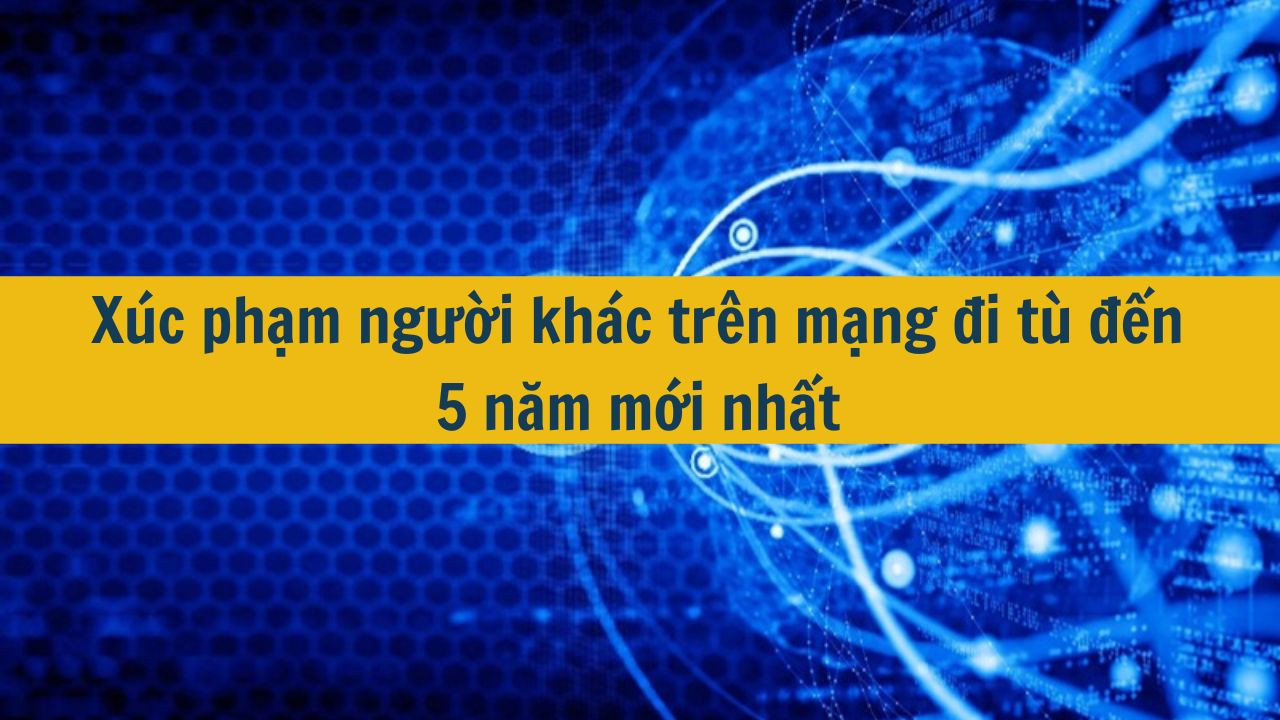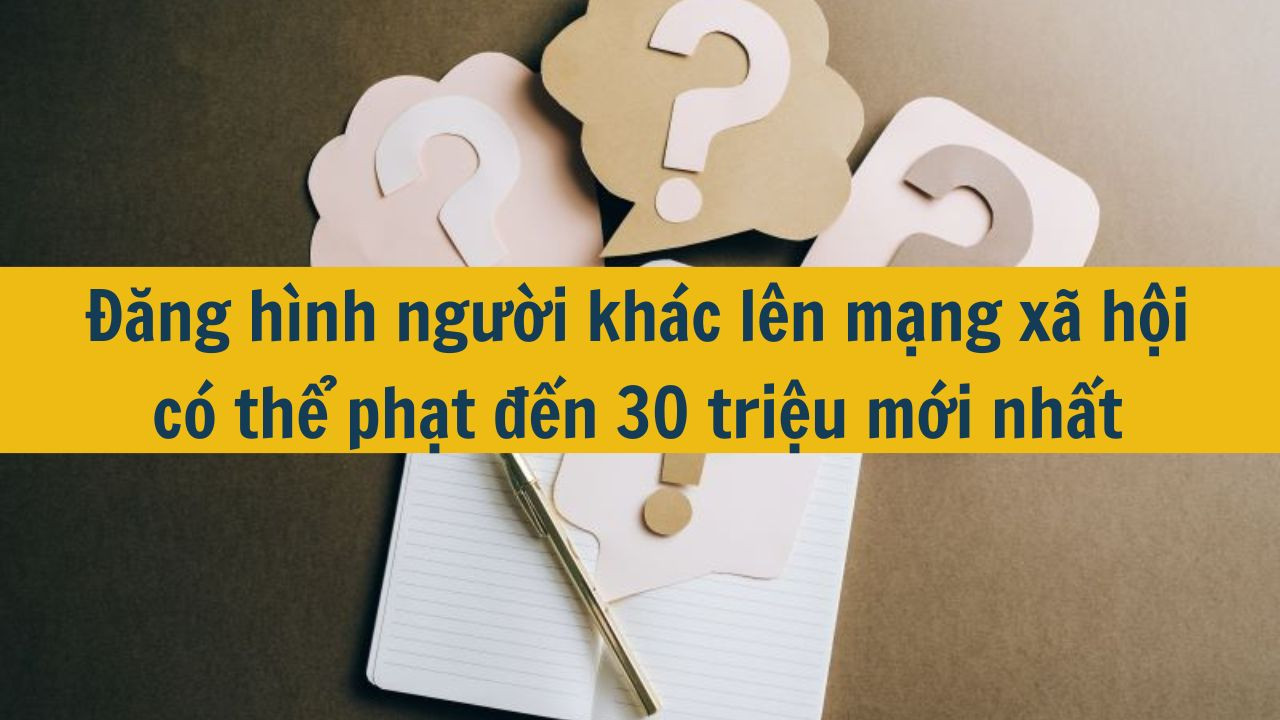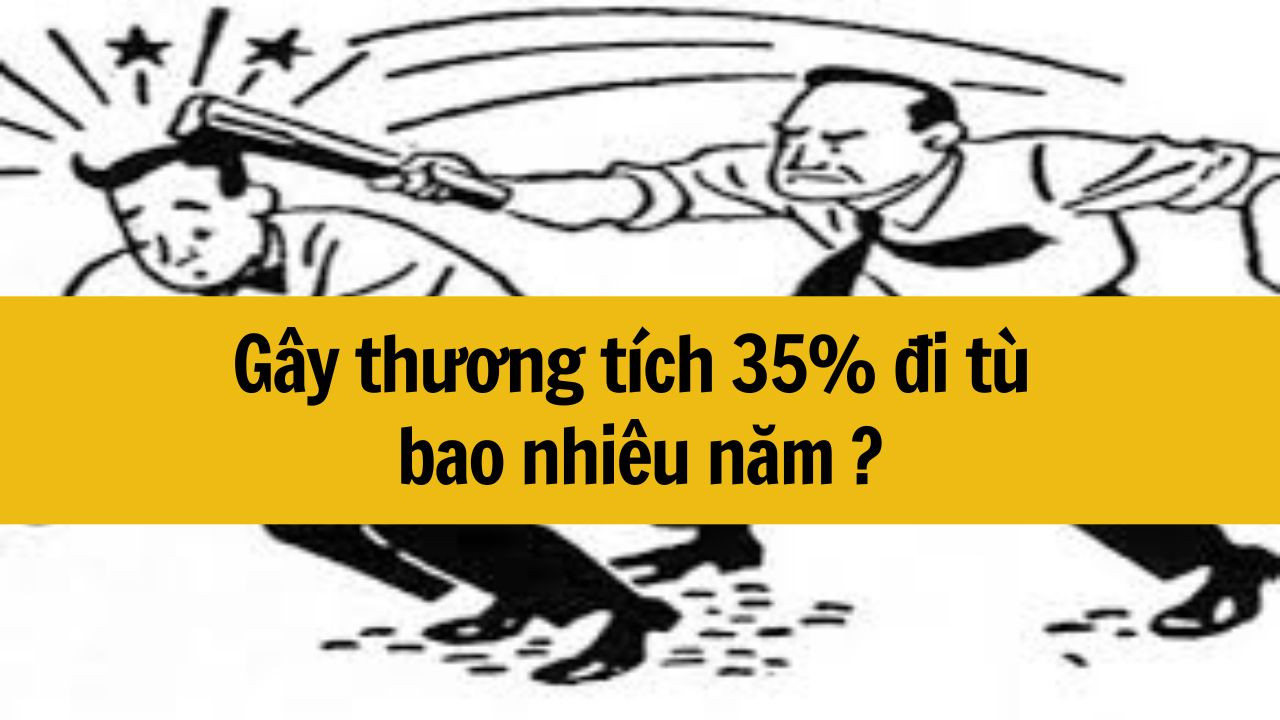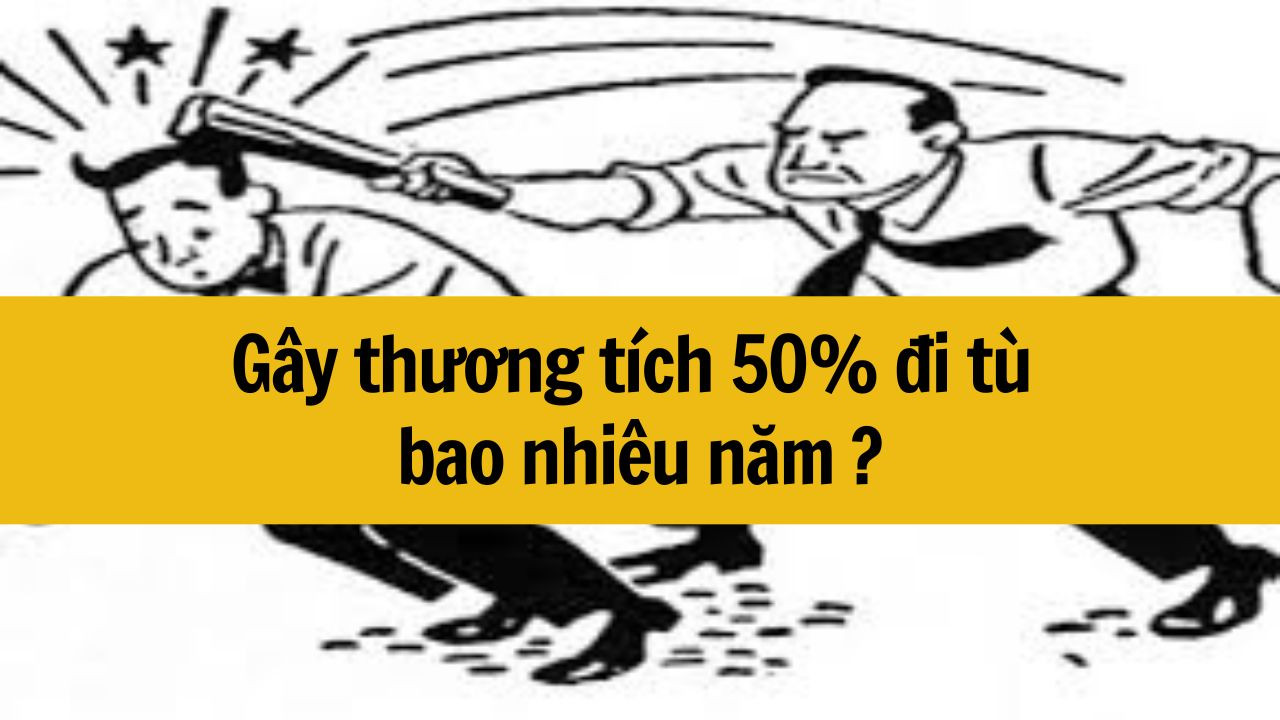 Tìm kiếm
Tìm kiếm
Chương XX Bộ luật Dân sự 2015: Trách nhiệm bồi thường thiệt hại ngoài hợp đồng
| Số hiệu: | 91/2015/QH13 | Loại văn bản: | Luật |
| Nơi ban hành: | Quốc hội | Người ký: | Nguyễn Sinh Hùng |
| Ngày ban hành: | 24/11/2015 | Ngày hiệu lực: | 01/01/2017 |
| Ngày công báo: | 28/12/2015 | Số công báo: | Từ số 1243 đến số 1244 |
| Lĩnh vực: | Quyền dân sự | Tình trạng: | Còn hiệu lực |
TÓM TẮT VĂN BẢN
Bộ luật dân sự 2015 vừa được ban hành ngày 24/11/2015 với nhiều nội dung mới về xác lập, bảo vệ quyền dân sự; năng lực pháp luật dân sự của cá nhân, pháp nhân; hộ gia đình, tổ hợp tác; tài sản; giao dịch dân sự; đại diện; thời hạn, thời hiệu; quyền tài sản; …
Bộ luật dân sự 2015 gồm 6 Phần, 27 Chương, 689 Điều (Thay vì Bộ luật dân sự 2005 là 7 Phần, 36 Chương, 777 Điều). Cấu trúc Bộ luật dân sự năm 2015 có phần khác biệt BLDS cũ, được sắp xếp như sau:
Phần thứ nhất: Quy định chung
Chương I: Những quy định chung
Chương II: Xác lập, thực hiện và bảo vệ quyền dân sự
Chương III: Cá nhân
Chương IV: Pháp nhân
Chương V: Nhà nước cộng hòa xã hội chủ nghĩa Việt Nam, cơ quan nhà nước ở trung ương, ở đỊa phương trong quan hệ dân sự
Chương VI: Hộ gia đình, tổ hợp tác và tổ chức khác không có tư cách pháp nhân trong quan hệ dân sự
Chương VII: Tài sản
Chương VIII: Giao dịch dân sự
Chương IX: Đại diện
Chương X: Thời hạn và thời hiệu
Phần thứ hai: Quyền sở hữu và quyền khác đối với tài sản
Chương XI: Quy định chung
Chương XII: Chiếm hữu
Chương XIII: Quyền sở hữu
Chương XIV: Quyền khác đối với tài sản
Phần thứ ba: Nghĩa vụ và hợp đồng
Chương XV: Quy định chung
Chương XVI: Một số hợp đồng thông dụng
Chương XVII: Hứa thưởng , thi có giải
Chương XVIII: Thực hiện công việc không có uỷ quyền
Chương XIX: Nghĩa vụ hoàn trả do chiếm hữu, sử dụng tài sản, được lợi về tài sản không có căn cứ pháp luật
Chương XX: Trách nhiệm bồi thường thiệt hại ngoài hợp đồng
Phần thứ tư: Thừa kế
Chương XXI: Quy định chung
Chương XXII: Thừa kế theo di chúc
Chương XXIII: Thừa kế theo pháp luật
Chương XXIV: Thanh toán và phân chia di sản
Phần thứ năm: Pháp luật áp dụng đối với quan hệ dân sự có yếu tố nước ngoài
Chương XXV: Quy định chung
Xhương XXVI: Pháp luật áp dụng đối với cá nhân, pháp nhân
Chương XXVII: Pháp luật áp dụng đối với quan hệ tài sản, quan hệ nhân thân
Phần thứ sáu: Điều khoản thi hành
Theo đó, Bộ luật DS 2015 có những điểm sau đáng chú ý:
- Chuyển đổi giới tính
Theo Điều 37 Bộ luật dân sự 2015, việc chuyển đổi giới tính được thực hiện theo quy định của luật. Cá nhân đã chuyển đổi giới tính có quyền, nghĩa vụ đăng ký thay đổi hộ tịch; có quyền nhân thân phù hợp với giới tính đã được chuyển đổi theo quy định của BLDS 2015 và luật khác có liên quan.
- Pháp nhân thương mại
Tại Điều 75 Luật dân sự 2015 có quy định pháp nhân thương mại là pháp nhân có mục tiêu chính là tìm kiếm lợi nhuận và lợi nhuận được chia cho các thành viên. Pháp nhân thương mại bao gồm doanh nghiệp và các tổ chức kinh tế khác.
- Thời hiệu thừa kế
+ Điều 623 Bộ luật dân sự 2015 quy định thời hiệu để người thừa kế yêu cầu chia di sản là 30 năm đối với bất động sản, 10 năm đối với động sản, kể từ thời điểm mở thừa kế. Hết thời hạn này thì di sản thuộc về người thừa kế đang quản lý di sản đó.
+ Thời hiệu để người thừa kế yêu cầu xác nhận quyền thừa kế của mình hoặc bác bỏ quyền thừa kế của người khác là 10 năm, kể từ thời điểm mở thừa kế.
+ Thời hiệu yêu cầu người thừa kế thực hiện nghĩa vụ về tài sản của người chết để lại là 03 năm, kể từ thời điểm mở thừa kế.
- Điều kiện giao dịch chung trong giao kết hợp đồng
Tại Điều 406 Luật dân sự 2015 có quy định:
+ Điều kiện giao dịch chung là những điều khoản ổn định do một bên công bố để áp dụng chung cho bên được đề nghị giao kết hợp đồng; nếu bên được đề nghị chấp nhận giao kết hợp đồng thì coi như chấp nhận các điều khoản này.
+ Điều kiện giao dịch chung chỉ có hiệu lực với bên xác lập giao dịch trong trường hợp điều kiện giao dịch này đã được công khai để bên xác lập giao dịch biết hoặc phải biết về điều kiện đó.
+ Trường hợp điều kiện giao dịch chung có quy định về miễn trách nhiệm của bên đưa ra điều kiện giao dịch chung, tăng trách nhiệm hoặc loại bỏ quyền lợi chính đáng của bên kia thì quy định này không có hiệu lực, trừ trường hợp có thỏa thuận khác.
- Quyền khác đối với tài sản tại Điều 159 Bộ luật dân sự năm 2015
+ Quyền khác đối với tài sản là quyền của chủ thể trực tiếp nắm giữ, chi phối tài sản thuộc quyền sở hữu của chủ thể khác.
+ Quyền khác đối với tài sản bao gồm: Quyền đối với bất động sản liền kề; Quyền hưởng dụng; Quyền bề mặt.
BLDS 2015 có hiệu lực từ ngày 01/01/2017.
Văn bản tiếng việt
Văn bản tiếng anh
1. Người nào có hành vi xâm phạm tính mạng, sức khỏe, danh dự, nhân phẩm, uy tín, tài sản, quyền, lợi ích hợp pháp khác của người khác mà gây thiệt hại thì phải bồi thường, trừ trường hợp Bộ luật này, luật khác có liên quan quy định khác.
2. Người gây thiệt hại không phải chịu trách nhiệm bồi thường thiệt hại trong trường hợp thiệt hại phát sinh là do sự kiện bất khả kháng hoặc hoàn toàn do lỗi của bên bị thiệt hại, trừ trường hợp có thỏa thuận khác hoặc luật có quy định khác.
3. Trường hợp tài sản gây thiệt hại thì chủ sở hữu, người chiếm hữu tài sản phải chịu trách nhiệm bồi thường thiệt hại, trừ trường hợp thiệt hại phát sinh theo quy định tại khoản 2 Điều này.
1. Thiệt hại thực tế phải được bồi thường toàn bộ và kịp thời. Các bên có thể thỏa thuận về mức bồi thường, hình thức bồi thường bằng tiền, bằng hiện vật hoặc thực hiện một công việc, phương thức bồi thường một lần hoặc nhiều lần, trừ trường hợp pháp luật có quy định khác.
2. Người chịu trách nhiệm bồi thường thiệt hại có thể được giảm mức bồi thường nếu không có lỗi hoặc có lỗi vô ý và thiệt hại quá lớn so với khả năng kinh tế của mình.
3. Khi mức bồi thường không còn phù hợp với thực tế thì bên bị thiệt hại hoặc bên gây thiệt hại có quyền yêu cầu Tòa án hoặc cơ quan nhà nước có thẩm quyền khác thay đổi mức bồi thường.
4. Khi bên bị thiệt hại có lỗi trong việc gây thiệt hại thì không được bồi thường phần thiệt hại do lỗi của mình gây ra.
5. Bên có quyền, lợi ích bị xâm phạm không được bồi thường nếu thiệt hại xảy ra do không áp dụng các biện pháp cần thiết, hợp lý để ngăn chặn, hạn chế thiệt hại cho chính mình.
1. Người từ đủ mười tám tuổi trở lên gây thiệt hại thì phải tự bồi thường.
2. Người chưa đủ mười lăm tuổi gây thiệt hại mà còn cha, mẹ thì cha, mẹ phải bồi thường toàn bộ thiệt hại; nếu tài sản của cha, mẹ không đủ để bồi thường mà con chưa thành niên gây thiệt hại có tài sản riêng thì lấy tài sản đó để bồi thường phần còn thiếu, trừ trường hợp quy định tại Điều 599 của Bộ luật này.
Người từ đủ mười lăm tuổi đến chưa đủ mười tám tuổi gây thiệt hại thì phải bồi thường bằng tài sản của mình; nếu không đủ tài sản để bồi thường thì cha, mẹ phải bồi thường phần còn thiếu bằng tài sản của mình.
3. Người chưa thành niên, người mất năng lực hành vi dân sự, người có khó khăn trong nhận thức, làm chủ hành vi gây thiệt hại mà có người giám hộ thì người giám hộ đó được dùng tài sản của người được giám hộ để bồi thường; nếu người được giám hộ không có tài sản hoặc không đủ tài sản để bồi thường thì người giám hộ phải bồi thường bằng tài sản của mình; nếu người giám hộ chứng minh được mình không có lỗi trong việc giám hộ thì không phải lấy tài sản của mình để bồi thường.
Trường hợp nhiều người cùng gây thiệt hại thì những người đó phải liên đới bồi thường cho người bị thiệt hại. Trách nhiệm bồi thường của từng người cùng gây thiệt hại được xác định tương ứng với mức độ lỗi của mỗi người; nếu không xác định được mức độ lỗi thì họ phải bồi thường thiệt hại theo phần bằng nhau.
Thời hiệu khởi kiện yêu cầu bồi thường thiệt hại là 03 năm, kể từ ngày người có quyền yêu cầu biết hoặc phải biết quyền, lợi ích hợp pháp của mình bị xâm phạm.
1. Thiệt hại do sức khỏe bị xâm phạm bao gồm:
a) Chi phí hợp lý cho việc cứu chữa, bồi dưỡng, phục hồi sức khỏe và chức năng bị mất, bị giảm sút của người bị thiệt hại;
b) Thu nhập thực tế bị mất hoặc bị giảm sút của người bị thiệt hại; nếu thu nhập thực tế của người bị thiệt hại không ổn định và không thể xác định được thì áp dụng mức thu nhập trung bình của lao động cùng loại;
c) Chi phí hợp lý và phần thu nhập thực tế bị mất của người chăm sóc người bị thiệt hại trong thời gian điều trị; nếu người bị thiệt hại mất khả năng lao động và cần phải có người thường xuyên chăm sóc thì thiệt hại bao gồm cả chi phí hợp lý cho việc chăm sóc người bị thiệt hại;
d) Thiệt hại khác do luật quy định.
2. Người chịu trách nhiệm bồi thường trong trường hợp sức khỏe của người khác bị xâm phạm phải bồi thường thiệt hại theo quy định tại khoản 1 Điều này và một khoản tiền khác để bù đắp tổn thất về tinh thần mà người đó gánh chịu. Mức bồi thường bù đắp tổn thất về tinh thần do các bên thỏa thuận; nếu không thỏa thuận được thì mức tối đa cho một người có sức khỏe bị xâm phạm không quá năm mươi lần mức lương cơ sở do Nhà nước quy định.
1. Thiệt hại do tính mạng bị xâm phạm bao gồm:
a) Thiệt hại do sức khỏe bị xâm phạm theo quy định tại Điều 590 của Bộ luật này;
b) Chi phí hợp lý cho việc mai táng;
c) Tiền cấp dưỡng cho những người mà người bị thiệt hại có nghĩa vụ cấp dưỡng;
d) Thiệt hại khác do luật quy định.
2. Người chịu trách nhiệm bồi thường trong trường hợp tính mạng của người khác bị xâm phạm phải bồi thường thiệt hại theo quy định tại khoản 1 Điều này và một khoản tiền khác để bù đắp tổn thất về tinh thần cho những người thân thích thuộc hàng thừa kế thứ nhất của người bị thiệt hại, nếu không có những người này thì người mà người bị thiệt hại đã trực tiếp nuôi dưỡng, người đã trực tiếp nuôi dưỡng người bị thiệt hại được hưởng khoản tiền này. Mức bồi thường bù đắp tổn thất về tinh thần do các bên thỏa thuận; nếu không thỏa thuận được thì mức tối đa cho một người có tính mạng bị xâm phạm không quá một trăm lần mức lương cơ sở do Nhà nước quy định.
1. Thiệt hại do danh dự, nhân phẩm, uy tín bị xâm phạm bao gồm:
a) Chi phí hợp lý để hạn chế, khắc phục thiệt hại;
b) Thu nhập thực tế bị mất hoặc bị giảm sút;
c) Thiệt hại khác do luật quy định.
2. Người chịu trách nhiệm bồi thường trong trường hợp danh dự, nhân phẩm, uy tín của người khác bị xâm phạm phải bồi thường thiệt hại theo quy định tại khoản 1 Điều này và một khoản tiền khác để bù đắp tổn thất về tinh thần mà người đó gánh chịu. Mức bồi thường bù đắp tổn thất về tinh thần do các bên thỏa thuận; nếu không thỏa thuận được thì mức tối đa cho một người có danh dự, nhân phẩm, uy tín bị xâm phạm không quá mười lần mức lương cơ sở do Nhà nước quy định.
1. Trường hợp người bị thiệt hại mất hoàn toàn khả năng lao động thì người bị thiệt hại được hưởng bồi thường từ thời điểm mất hoàn toàn khả năng lao động cho đến khi chết, trừ trường hợp có thỏa thuận khác.
2. Trường hợp người bị thiệt hại chết thì những người mà người này có nghĩa vụ cấp dưỡng khi còn sống được hưởng tiền cấp dưỡng từ thời điểm người có tính mạng bị xâm phạm chết trong thời hạn sau đây:
a) Người chưa thành niên hoặc người đã thành thai là con của người chết và còn sống sau khi sinh ra được hưởng tiền cấp dưỡng cho đến khi đủ mười tám tuổi, trừ trường hợp người từ đủ mười lăm tuổi đến chưa đủ mười tám tuổi đã tham gia lao động và có thu nhập đủ nuôi sống bản thân;
b) Người thành niên nhưng không có khả năng lao động được hưởng tiền cấp dưỡng cho đến khi chết.
3. Đối với con đã thành thai của người chết, tiền cấp dưỡng được tính từ thời điểm người này sinh ra và còn sống.
Người gây thiệt hại trong trường hợp phòng vệ chính đáng không phải bồi thường cho người bị thiệt hại.
Người gây thiệt hại do vượt quá giới hạn phòng vệ chính đáng phải bồi thường cho người bị thiệt hại.
1. Trường hợp thiệt hại xảy ra do vượt quá yêu cầu của tình thế cấp thiết thì người gây thiệt hại phải bồi thường phần thiệt hại xảy ra do vượt quá yêu cầu của tình thế cấp thiết cho người bị thiệt hại.
2. Người đã gây ra tình thế cấp thiết dẫn đến thiệt hại xảy ra thì phải bồi thường cho người bị thiệt hại.
1. Người do uống rượu hoặc do dùng chất kích thích khác mà lâm vào tình trạng mất khả năng nhận thức và làm chủ hành vi, gây thiệt hại cho người khác thì phải bồi thường.
2. Khi một người cố ý dùng rượu hoặc chất kích thích khác làm cho người khác lâm vào tình trạng mất khả năng nhận thức và làm chủ hành vi mà gây thiệt hại thì phải bồi thường cho người bị thiệt hại.
Pháp nhân phải bồi thường thiệt hại do người của mình gây ra trong khi thực hiện nhiệm vụ được pháp nhân giao; nếu pháp nhân đã bồi thường thiệt hại thì có quyền yêu cầu người có lỗi trong việc gây thiệt hại phải hoàn trả một khoản tiền theo quy định của pháp luật.
Nhà nước có trách nhiệm bồi thường thiệt hại do hành vi trái pháp luật của người thi hành công vụ gây ra theo quy định của Luật Trách nhiệm bồi thường của Nhà nước.
1. Người chưa đủ mười lăm tuổi trong thời gian trường học trực tiếp quản lý mà gây thiệt hại thì trường học phải bồi thường thiệt hại xảy ra.
2. Người mất năng lực hành vi dân sự gây thiệt hại cho người khác trong thời gian bệnh viện, pháp nhân khác trực tiếp quản lý thì bệnh viện, pháp nhân khác phải bồi thường thiệt hại xảy ra.
3. Trường học, bệnh viện, pháp nhân khác quy định tại khoản 1 và khoản 2 Điều này không phải bồi thường nếu chứng minh được mình không có lỗi trong quản lý; trong trường hợp này, cha, mẹ, người giám hộ của người dưới mười lăm tuổi, người mất năng lực hành vi dân sự phải bồi thường.
Cá nhân, pháp nhân phải bồi thường thiệt hại do người làm công, người học nghề gây ra trong khi thực hiện công việc được giao và có quyền yêu cầu người làm công, người học nghề có lỗi trong việc gây thiệt hại phải hoàn trả một khoản tiền theo quy định của pháp luật.
1. Nguồn nguy hiểm cao độ bao gồm phương tiện giao thông vận tải cơ giới, hệ thống tải điện, nhà máy công nghiệp đang hoạt động, vũ khí, chất nổ, chất cháy, chất độc, chất phóng xạ, thú dữ và các nguồn nguy hiểm cao độ khác do pháp luật quy định.
Chủ sở hữu nguồn nguy hiểm cao độ phải vận hành, sử dụng, bảo quản, trông giữ, vận chuyển nguồn nguy hiểm cao độ theo đúng quy định của pháp luật.
2. Chủ sở hữu nguồn nguy hiểm cao độ phải bồi thường thiệt hại do nguồn nguy hiểm cao độ gây ra; nếu chủ sở hữu đã giao cho người khác chiếm hữu, sử dụng thì người này phải bồi thường, trừ trường hợp có thỏa thuận khác.
3. Chủ sở hữu, người chiếm hữu, sử dụng nguồn nguy hiểm cao độ phải bồi thường thiệt hại cả khi không có lỗi, trừ trường hợp sau đây:
a) Thiệt hại xảy ra hoàn toàn do lỗi cố ý của người bị thiệt hại;
b) Thiệt hại xảy ra trong trường hợp bất khả kháng hoặc tình thế cấp thiết, trừ trường hợp pháp luật có quy định khác.
4. Trường hợp nguồn nguy hiểm cao độ bị chiếm hữu, sử dụng trái pháp luật thì người đang chiếm hữu, sử dụng nguồn nguy hiểm cao độ trái pháp luật phải bồi thường thiệt hại.
Khi chủ sở hữu, người chiếm hữu, sử dụng nguồn nguy hiểm cao độ có lỗi trong việc để nguồn nguy hiểm cao độ bị chiếm hữu, sử dụng trái pháp luật thì phải liên đới bồi thường thiệt hại.
Chủ thể làm ô nhiễm môi trường mà gây thiệt hại thì phải bồi thường theo quy định của pháp luật, kể cả trường hợp chủ thể đó không có lỗi.
1. Chủ sở hữu súc vật phải bồi thường thiệt hại do súc vật gây ra cho người khác. Người chiếm hữu, sử dụng súc vật phải bồi thường thiệt hại trong thời gian chiếm hữu, sử dụng súc vật, trừ trường hợp có thỏa thuận khác.
2. Trường hợp người thứ ba hoàn toàn có lỗi làm cho súc vật gây thiệt hại cho người khác thì người thứ ba phải bồi thường thiệt hại; nếu người thứ ba và chủ sở hữu cùng có lỗi thì phải liên đới bồi thường thiệt hại.
3. Trường hợp súc vật bị chiếm hữu, sử dụng trái pháp luật gây thiệt hại thì người chiếm hữu, sử dụng trái pháp luật phải bồi thường; khi chủ sở hữu, người chiếm hữu, sử dụng súc vật có lỗi trong việc để súc vật bị chiếm hữu, sử dụng trái pháp luật thì phải liên đới bồi thường thiệt hại.
4. Trường hợp súc vật thả rông theo tập quán mà gây thiệt hại thì chủ sở hữu súc vật đó phải bồi thường theo tập quán nhưng không được trái pháp luật, đạo đức xã hội.
Chủ sở hữu, người chiếm hữu, người được giao quản lý, sử dụng nhà cửa, công trình xây dựng khác phải bồi thường thiệt hại do nhà cửa, công trình xây dựng khác đó gây thiệt hại cho người khác.
Khi người thi công có lỗi trong việc để nhà cửa, công trình xây dựng khác gây thiệt hại thì phải liên đới bồi thường.
1. Cá nhân, pháp nhân xâm phạm thi thể phải bồi thường thiệt hại.
2. Thiệt hại do xâm phạm thi thể gồm chi phí hợp lý để hạn chế, khắc phục thiệt hại.
3. Người chịu trách nhiệm bồi thường khi thi thể bị xâm phạm phải bồi thường theo quy định tại khoản 2 Điều này và một khoản tiền khác để bù đắp tổn thất về tinh thần cho những người thân thích thuộc hàng thừa kế thứ nhất của người chết, nếu không có những người này thì người trực tiếp nuôi dưỡng người chết được hưởng khoản tiền này. Mức bồi thường bù đắp tổn thất về tinh thần do các bên thỏa thuận; nếu không thỏa thuận được thì mức tối đa đối với mỗi thi thể bị xâm phạm không quá ba mươi lần mức lương cơ sở do Nhà nước quy định.
1. Cá nhân, pháp nhân xâm phạm đến mồ mả của người khác phải bồi thường thiệt hại.
2. Thiệt hại do xâm phạm mồ mả gồm chi phí hợp lý để hạn chế, khắc phục thiệt hại.
3. Người chịu trách nhiệm bồi thường trong trường hợp mồ mả của người khác bị xâm phạm phải bồi thường theo quy định tại khoản 2 Điều này và một khoản tiền khác để bù đắp tổn thất về tinh thần cho những người thân thích theo thứ tự hàng thừa kế của người chết; nếu không có những người này thì người trực tiếp nuôi dưỡng người chết được hưởng khoản tiền này. Mức bồi thường bù đắp tổn thất về tinh thần do các bên thỏa thuận; nếu không thỏa thuận được thì mức tối đa đối với mỗi mồ mả bị xâm phạm không quá mười lần mức lương cơ sở do Nhà nước quy định.
Cá nhân, pháp nhân sản xuất, kinh doanh hàng hóa, dịch vụ không bảo đảm chất lượng hàng hóa, dịch vụ mà gây thiệt hại cho người tiêu dùng thì phải bồi thường.
LIABILITY FOR COMPENSATION FOR NON-CONTRACTUAL DAMAGES
Article 584. Grounds giving rise to liability to compensate for damage
1. A person intentionally or unintentionally harming the life, health, honor, dignity, reputation, property, or other legal rights or interests of a person, must compensate for such damage, unless otherwise prescribed in this Code or relevant laws.
2. The person who causes damage shall be discharged from liability for compensation in case where the damage incurs due to force majeure events or at entire fault of the aggrieved person, unless otherwise agreed or otherwise prescribed by law.
3. If a property causes damage, its owner or possessor must compensate for the damage, except for the damage prescribed in Clause 2 of this Article.
Article 585. Principles of compensation for damage
1. Actual damage must be compensated in full and promptly. Unless otherwise provided by law, parties may agree on the amount of compensation; on the form of compensation, which may be money, in kind or the performance of an act; lump sum payment or payment in instalments; and on the method of compensation.
2. The compensation payable by a person having caused damage may be reduced if such damage was caused unintentionally and is very large in comparison to the financial positions of such person.
3. If the amount of compensation determined becomes unrealistic, the aggrieved person, or the person having caused damage, has the right to request a court or another competent authority to change the amount of compensation.
4. If the aggrieved party is partly his/her fault for causing the damage, that part of damage shall not be compensated.
5. The party having rights and interests infringed shall not be compensated if such damage incurs due to his/her failure to adopt necessary measures to prevent the damage.
Article 586. Capacity of individuals for liability to compensate for damage
1. A person of eighteen years of age or older who causes damage shall be personally liable to compensate.
2. Where a minor under fifteen years of age causes damage, his or her parents, if any, must compensate for the total damage. If the parents have insufficient property to compensate and the minor who has caused the damage has property of his or her own, such property shall be used to satisfy the outstanding amount of compensation, except in the cases provided in Article 599 of this Code.
Where a person who is between fifteen and eighteen years of age causes damage, such person must compensate by recourse to his or her own property. If such person has insufficient property to compensate, the parents of such person must satisfy the outstanding amount by recourse to their own property.
3. Where a minor, legally incapacitated person, person with limited cognition and behavior control, causes damage but there is a guardian, such guardian shall use the property of the ward to compensate. If the ward has no or insufficient property to compensate, the guardian must do so by recourse to the property of the guardian. If the guardian is able to prove that he or she was not at fault with respect to guardianship, the guardian shall not be required to use its property to compensate.
Article 587. Compensation for damage caused jointly by several persons
Where several persons jointly cause damage, they must jointly compensate any aggrieved person. Liability for compensation of each person having jointly caused the damage shall be determined in proportion to the degree of fault of each person. If the degree of fault is not able to be determined, the persons causing damage must compensate in equal shares.
Article 588. Prescriptive period for initiating legal action claiming compensation for damage
The prescriptive period for initiating legal action claiming compensation for damage shall be 03 years from the date on which the legal rights or interests of an individual, legal entity or other subject were infringed.
Section 2. ASSESSMENT OF DAMAGE
Article 589. Damage caused by infringement of property
In the event of an infringement of property, the compensable damage shall comprise:
1. Property which was lost, destroyed or damaged;
2. Interests associated with the use and exploitation of the property was lost or declined;
3. Reasonable costs for the prevention, mitigation and remedy of the damage;
4. Other damage as prescribed by law.
Article 590. Damage caused by harm to health
1. Damage caused by harm to health shall comprise:
a) Reasonable costs for treating, nursing and rehabilitating health, and functional losses and impairment of the aggrieved person;
b) Loss of or reduction in the actual income of the aggrieved person. If the actual income of the aggrieved person is irregular and is not able to be determined, the average income level for the type of work performed by the aggrieved person shall be applied;
c) Reasonable costs and actual income losses of the carers of the aggrieved person during the period of treatment. If the aggrieved person loses his or her ability to work and requires a permanent carer, the damage shall also include reasonable costs for taking care of the aggrieved person.
d) Other damage as prescribed by law.
2. A person causing harm to the health of another person must pay the items provided in Clause 1 of this Article together with an amount of money as compensation for mental suffering of the aggrieved person. The amount of compensation for mental suffering shall be as agreed by the parties; if the parties are not able to agree, the maximum sum shall not exceed fifty-month base salary prescribed by the State.
Article 591. Damage caused by harm to life
1. Damage caused by harm to life shall comprise:
a) Damage caused by harm to life prescribed in Article 590 of this Code;
b) Reasonable funeral costs;
c) Support for the dependants of the aggrieved person;
d) Other damage as prescribed by law.
2. A person causing death to another person must pay compensation for damage as provided in Clause 1 of this Article together with an amount of money as compensation for mental suffering of the closest relatives in the first line of succession to the deceased. If there are no such relatives, this sum shall be paid to the persons who were directly reared by the deceased or to the persons who directly reared the deceased. The amount of compensation for mental suffering shall be as agreed by the parties; if the parties are not able to agree, the maximum sum shall not exceed one-hundred-month base salary prescribed in by the State.
Article 592. Damage caused by harm to honor, dignity or reputation
1. Damage caused by harm to the honor, dignity or reputation shall comprise:
a) Reasonable costs for mitigating and remedying the damage;
b) Loss of or reduction in actual income;
c) Other damage as prescribed by law.
2. A person causing harm to the honor, dignity or reputation of another person must pay compensation for damage as provided in Clause 1 of this Article together with another amount of money as compensation for mental suffering of the aggrieved person. The amount of compensation for mental suffering shall be as agreed by the parties; if the parties are not able to agree, the maximum sum shall not exceed ten-month base salary prescribed by the State.
Article 593. Period of entitlement to compensation for damage caused by harm to health or resulting from loss of life
1. Where an aggrieved person loses totally the ability to work, the aggrieved person shall receive compensation until the time of his or her death, unless otherwise agreed.
2. Where the aggrieved person dies, his or her dependants shall be entitled to receive support for the following durations:
a) A child of the deceased, whether living or conceived prior to his or her death, shall be entitled to compensation until the age of eighteen years, except a child between fifteen and eighteen years of age who is employed and earns sufficient income to look after himself or herself;
b) An adult who is not able to work shall be entitled to receive support until his or her death.
3. With regard to the conceived child of the deceased, the compensation shall be paid from the time he/she is born and alive.
Section 3. COMPENSATION FOR DAMAGE IN A NUMBER OF SPECIFIC CASES
Article 594. Compensation for damage by persons exceeding limits of reasonable self-defense
A person causing damage while acting in reasonable self-defense shall not be liable to compensate any aggrieved person.
A person causing damage while not acting in reasonable self-defense must compensate any aggrieved person.
Article 595. Compensation for damage by persons exceeding requirements of emergency situation
1. A person causing damage as a result of exceeding the requirements of an emergency situation must compensate any aggrieved person for that part of the damage which resulted from exceeding the requirements of an emergency situation.
2. A person creating an emergency situation which leads to damage being caused must compensate any aggrieved person.
Article 596. Compensation for damage caused by persons using stimulants
1. A person who, due to the consumption of alcohol or the use of other stimulants, becomes incapable of being aware of or controlling his or her acts, thereby causing damage to another person, must compensate such person.
2. A person who intentionally causes another person to take alcohol or stimulants, thereby causing such person to become incapable of being aware of or controlling his or her acts, must compensate any person aggrieved thereby.
Article 597. Compensation for damage caused by persons belonging to juridical persons
A juridical person must compensate for any damage caused by any person belonging to the juridical person during the performance of duties assigned by it to such person. If a juridical person has compensated for any damage, it has the right to demand the person at fault for causing the damage to reimburse it an amount of money in accordance with law.
Article 598. Compensation for damage caused by law enforcers
The State must compensate for damage caused by law enforcers as prescribed in the Law on compensation liability of the State.
Article 599. Compensation for damage caused by persons under fifteen years of age or persons having lost capacity for civil acts and under direct supervision of school, hospital or other organization
1. Where a person under fifteen years of age causes damage during school hours, the school must compensate for the damage.
2. If a legally incapacitated person causes damage to another person while under the direct supervision of a hospital or another juridical person, such hospital or the juridical person must compensate for the damage.
3. If, in the cases provided in Clauses 1 and 2 of this Article, the school, hospital or another juridical person proves that it was not at fault with respect to supervision, the parents or guardian of the person under fifteen years of age or of the legally incapacitated person must compensate.
Article 600. Compensation for damage caused workers and trainees
A natural person or juridical person must compensate for any damage caused by any worker or trainee belonging to it during the performance by the employee or trainee of his or her assigned duties. The natural person or juridical person has the right to demand such worker or trainee reimburse it an amount of money in accordance with law.
Article 601. Compensation for damage caused by sources of extreme danger
1. Sources of extreme danger comprise motorized means of transport, power transmission systems, operating industrial plants, weapons, explosives, inflammable substances, toxic substances, radioactive substances, dangerous animals and other sources of extreme danger as provided by law.
An owner of a source of extreme danger must comply strictly with the regulations on taking care of, preserving, transporting and using sources of extreme danger in accordance with law.
2. An owner of a source of extreme danger must compensate for damage caused by such source. If the owner has transferred possession or use of the source of extreme danger to another person, such other person must compensate [for the damage], unless otherwise agreed.
3. An owner, or person to which an owner has transferred the possession or use, of a source of extreme danger must compensate for damage caused by such source, even where such owner or person is not at fault, except in either of the following cases:
a) The aggrieved person is entirely at fault for intentionally causing the damage;
b) The damage occurred due to an event of force majeure or in an emergency situation, unless otherwise provided by law.
4. Where a source of extreme danger is taken into possession or used unlawfully, the person possessing or using [it] unlawfully must compensate for damage.
Where an owner, or a person to which an owner has transferred possession or use, of a source of extreme danger is at fault by allowing the unlawful possession or use of the source of extreme danger, the owner, or the person to which the owner has transferred possession or use, of the source of extreme danger as the case may be must compensate jointly for the damage.
Article 602. Compensation for damage caused by environmental pollution
Any entity polluting the environment, thereby causing damage, must compensate in accordance with the law, including when the entity polluting the environment was not at fault.
Article 603. Compensation for damage caused by livestock
1. An owner of livestock must compensate for damage caused to another person by such livestock. The possessor or user of livestock must compensate during the period of possession or using, unless otherwise agreed.
2. Where a third person is entirely at fault in causing livestock to cause damage to another person, the third person must compensate for the damage. If both the third person and the owner are at fault, both of them must compensate jointly for the damage.
3. Where livestock which is possessed or used unlawfully causes damage, the unlawful possessor or user must compensate for the damage. When the owner, possessor or user of livestock is at fault leading the livestock is possessed or used unlawfully thereby causes damage, they must jointly compensate for damage.
4. Where livestock which is allowed to roam according to customary practice causes damage, its owner must compensate according to customary practice provided that such compensation does not contravene the law or social morals.
Article 604. Compensation for damage caused by trees
An owner, a possessor or a person in charge of trees must compensate for damage caused by the trees.
Article 605. Compensation for damage caused by houses and other construction works or buildings
An owner or a possessor of a house or another construction work, or a person to which the owner has assigned the management or use thereof, must compensate for damage if such house or construction causes damage to another person.
If the executor of the house or construction work is partly fault that such house or construction work causes damage, he/she must jointly compensate for such damage.
Article 606. Compensation for damage caused by infringement of corpses
1. Each natural person or juridical causing damage to a corpse must compensate.
2. Damage caused by infringement of a corpse shall include reasonable costs for mitigating and remedying the damage.
3. A person causing damage to a corpse must pay an amount of money as provided in Clause 2 of this Article together with another amount of money as compensation for mental suffering of the closest relatives in the first line of succession to the deceased. If there are no such relatives, this sum shall be paid to the persons who directly reared the deceased. The amount of compensation for mental suffering shall be as agreed by the parties; if the parties are not able to agree, the maximum sum shall not exceed thirty-month base salary prescribed by the State.
Article 607. Compensation for damage caused by infringement of graves
1. Each natural person or juridical person causing damage to the grave of another must compensate.
2. Damage caused by infringement of a grave shall include reasonable costs for mitigating and remedying the damage.
3. A person causing damage to a grave must pay an amount of money as provided in Clause 2 of this Article together with another amount of money as compensation for mental suffering of the closest relatives in the first line of succession to the deceased. If there are no such relatives, this sum shall be paid to the persons who directly reared the deceased. The amount of compensation for mental suffering shall be as agreed by the parties; if the parties are not able to agree, the maximum sum for each damaged grave shall not exceed ten-month base salary prescribed by the State.
Article 608. Compensation for damage caused by infringement of consumer interests
A natural person or juridical person carrying out production or business and failing to ensure the quality of goods, thereby causing damage to consumers, must compensate for such damage.
Văn bản liên quan
Cập nhật
Mục 3. BẢO ĐẢM THỰC HIỆN NGHĨA VỤ
Điều 294. Bảo đảm thực hiện nghĩa vụ trong tương lai
Điều 297. Hiệu lực đối kháng với người thứ ba
Điều 305. Nhận chính tài sản bảo đảm để thay thế cho việc thực hiện nghĩa vụ của bên bảo đảm
Điều 311. Nghĩa vụ của bên cầm cố
Điều 312. Quyền của bên cầm cố
Tiểu mục 4. ĐẶT CỌC, KÝ CƯỢC, KÝ QUỸ
Điều 584. Căn cứ phát sinh trách nhiệm bồi thường thiệt hại
Điều 585. Nguyên tắc bồi thường thiệt hại
Điều 586. Năng lực chịu trách nhiệm bồi thường thiệt hại của cá nhân
Điều 588. Thời hiệu khởi kiện yêu cầu bồi thường thiệt hại
Điều 589. Thiệt hại do tài sản bị xâm phạm
Điều 590. Thiệt hại do sức khỏe bị xâm phạm
Điều 591. Thiệt hại do tính mạng bị xâm phạm
Điều 592. Thiệt hại do danh dự, nhân phẩm, uy tín bị xâm phạm
Điều 598. Bồi thường thiệt hại do người thi hành công vụ gây ra
Bài viết liên quan
Bảo hiểm trách nhiệm dân sự là gì? 07 điều cần biết về bảo hiểm trách nhiệm dân sự mới nhất 2025

Bảo hiểm trách nhiệm dân sự là gì? 07 điều cần biết về bảo hiểm trách nhiệm dân sự mới nhất 2025
Bảo hiểm trách nhiệm dân sự là một hình thức bảo hiểm quan trọng, giúp bảo vệ cá nhân, tổ chức trước các rủi ro pháp lý liên quan đến trách nhiệm đối với thiệt hại về tài sản hoặc sức khỏe của bên thứ ba. Với những thay đổi và quy định mới trong năm 2025, việc hiểu rõ về bảo hiểm trách nhiệm dân sự trở nên cực kỳ cần thiết. Trong bài viết này, chúng tôi sẽ cung cấp cho bạn 07 điều cần biết về bảo hiểm trách nhiệm dân sự mới nhất, giúp bạn nắm bắt thông tin quan trọng để bảo vệ quyền lợi và giảm thiểu rủi ro một cách hiệu quả. 14/03/2025Vu khống người khác phạt tù đến 7 năm mới nhất 2025?

Vu khống người khác phạt tù đến 7 năm mới nhất 2025?
Vu khống người khác là một trong những hành vi vi phạm pháp luật, ảnh hưởng trực tiếp đến đời sống tinh thần và vật chất của người đó, gây ra những hậu quả không mong muốn. Vậy vu khống người khác phạt tù đến 7 năm mới nhất 2025? Bài viết sau đây sẽ làm rõ vấn đề này 13/03/2025Làm việc theo hợp đồng cộng tác viên có đóng bảo hiểm không?

Làm việc theo hợp đồng cộng tác viên có đóng bảo hiểm không?
Nhiều doanh nghiệp hiện nay tuyển dụng cộng tác viên (CTV) để thực hiện các công việc mang tính thời vụ, linh hoạt mà không ràng buộc như lao động chính thức. Tuy nhiên, một trong những vấn đề được quan tâm là liệu người làm việc theo hợp đồng cộng tác viên có phải đóng bảo hiểm xã hội (BHXH) không? Quy định pháp luật hiện hành có bắt buộc doanh nghiệp và CTV tham gia bảo hiểm không? Bài viết dưới đây sẽ giúp bạn hiểu rõ hơn về chính sách bảo hiểm đối với lao động làm việc theo hình thức cộng tác viên. 12/03/2025Xúc phạm người khác trên mạng đi tù đến 5 năm mới nhất 2025

Xúc phạm người khác trên mạng đi tù đến 5 năm mới nhất 2025
Bôi nhọ, xúc phạm danh dự người khác trên mạng xã hội là một trong những hành vi vi phạm pháp luật, ảnh hưởng trực tiếp đến đời sống tinh thần và vật chất của người đó, gây ra những hậu quả không mong muốn. Vậy xúc phạm người khác trên mạng đi tù đến 5 năm mới nhất 2025? Bài viết sau đây sẽ làm rõ vấn đề này. 14/03/2025Bôi nhọ, xúc phạm danh dự người khác trên mạng xã hội xử phạt mới nhất 2025 ra sao?

Bôi nhọ, xúc phạm danh dự người khác trên mạng xã hội xử phạt mới nhất 2025 ra sao?
Bôi nhọ, xúc phạm danh dự người khác trên mạng xã hội là một trong những hành vi vi phạm pháp luật, ảnh hưởng trực tiếp đến đời sống tinh thần và vật chất của người đó, gây ra những hậu quả không mong muốn. Vậy bôi nhọ, xúc phạm danh dự người khác trên mạng xã hội xử phạt mới nhất 2025 ra sao? Bài viết sau đây sẽ làm rõ vấn đề này. 13/03/2025Có được quay phim người khác khi không có sự cho phép không?

Có được quay phim người khác khi không có sự cho phép không?
Đăng hình người khác lên mạng xã hội trái ý muốn của người đó là một trong những hành vi vi phạm pháp luật, ảnh hưởng trực tiếp đến đời sống tinh thần và vật chất của người đó, gây ra những hậu quả không mong muốn. Vậy có được quay phim người khác khi không có sự cho phép không? Bài viết sau đây sẽ làm rõ vấn đề này. 08/03/2025Sử dụng hình ảnh của người khác khi chưa được cho phép phạt đến 5 năm tù mới nhất 2025?

Sử dụng hình ảnh của người khác khi chưa được cho phép phạt đến 5 năm tù mới nhất 2025?
Đăng hình người khác lên mạng xã hội trái ý muốn của người đó là một trong những hành vi vi phạm pháp luật, ảnh hưởng trực tiếp đến đời sống tinh thần và vật chất của người đó, gây ra những hậu quả không mong muốn. Vậy sử dụng hình ảnh của người khác khi chưa được cho phép phạt đến 5 năm tù mới nhất 2025? Bài viết sau đây sẽ làm rõ vấn đề này. 10/03/2025Đăng hình người khác lên mạng xã hội có thể phạt đến 30 triệu mới nhất 2025?

Đăng hình người khác lên mạng xã hội có thể phạt đến 30 triệu mới nhất 2025?
Đăng hình người khác lên mạng xã hội trái ý muốn của người đó là một trong những hành vi vi phạm pháp luật, ảnh hưởng trực tiếp đến đời sống tinh thần và vật chất của người đó, gây ra những hậu quả không mong muốn. Vậy đăng hình người khác lên mạng xã hội có thể phạt đến 30 triệu mới nhất 2025? Bài viết sau đây sẽ làm rõ vấn đề này. 14/03/2025Gây thương tích 35% đi tù bao nhiêu năm mới nhất 2025?

Gây thương tích 35% đi tù bao nhiêu năm mới nhất 2025?
Gây thương tích 35% đi tù bao nhiêu năm? Đây là thắc mắc của nhiều người khi mức độ tổn thương không nhỏ và có thể bị truy cứu trách nhiệm hình sự. Việc xác định hình phạt sẽ căn cứ vào hành vi, nguyên nhân và các tình tiết liên quan. Bài viết dưới đây sẽ cập nhật mức phạt mới nhất năm 2025 theo quy định pháp luật. 07/03/2025Gây thương tích 50% đi tù bao nhiêu năm mới nhất 2025?


 Bộ luật Dân sự 2015 (Bản Word)
Bộ luật Dân sự 2015 (Bản Word)
 Bộ luật Dân sự 2015 (Bản Pdf)
Bộ luật Dân sự 2015 (Bản Pdf)